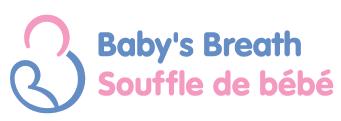Prolonged Grief Disorder Study
Last month, the results of a study conducted by Dr. Rick Goldstein, Program Director of the Robert’s Program on Sudden Unexpected Death in Pediatrics and Assistant Professor of Pediatrics, Harvard Medical school were published in the American Academy of Pediatrics’ journal, Pediatrics. This article is titled “The Grief of Mothers After the Sudden Unexpected Death of Their Infants”.
This study looks at Prolonged Grief Disorder (PGD), which was formerly known as Complicated Grief and alternatively called Persistent Complex Bereavement Disorder. It is distinct from PTSD and depression. PGD is a psychiatric diagnosis for severe disabling grief that persists for more than 6 months following a significant loss. Dr. Goldstein outlines the symptoms of PGD as severe emotional pain, intense yearning and specific cognitive, behavioural and emotional symptoms. PGD is associated with poor health and a poor quality of life. It is believed that under 10% of all bereaved individuals are faced with PGD within a year following their loss.
The study followed 408 women for 4 years following their infant’s death. Overall, they found that 50% of those mothers had PGD at some point in the 4 years and at any given check point at least 40% of the women had PGD. 68.1% of women reported daily intrusive and emotional pain.
PGD often has unrecognized impacts on a mother’s health and well-being. This level of grief can affect all those around her.
This study is important in that it helps parents identify and associate the symptoms they are feeling. It is important for family physicians to ask the relevant questions to help identify and best support their patients that may be experiencing PGD. Dr. Goldstein’s study shows us that the grief a parent experiences after the loss of their child is unlike any other type of grief so we must treat it differently. This shows us that more programs and services specific to supporting grieving parents is required.
Click here to learn more about bereavement support programs available through Baby’s Breath.
